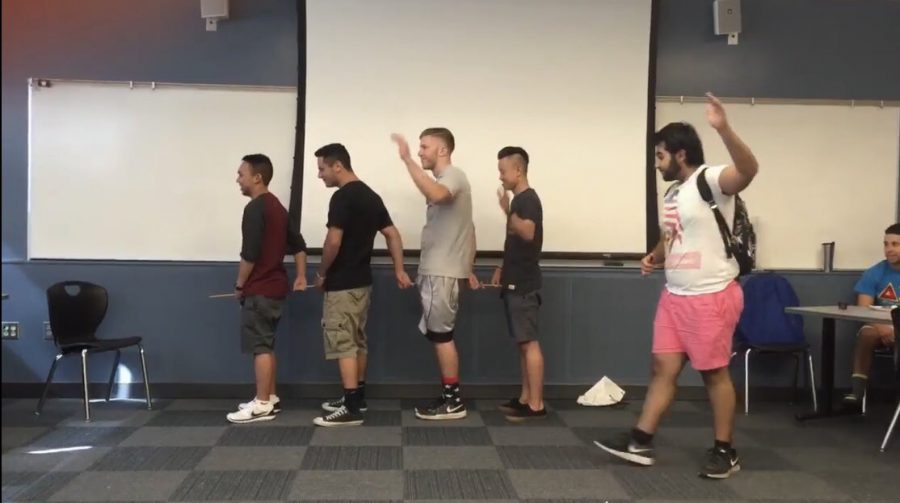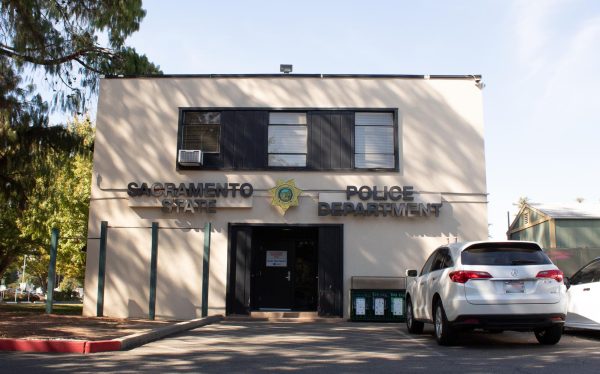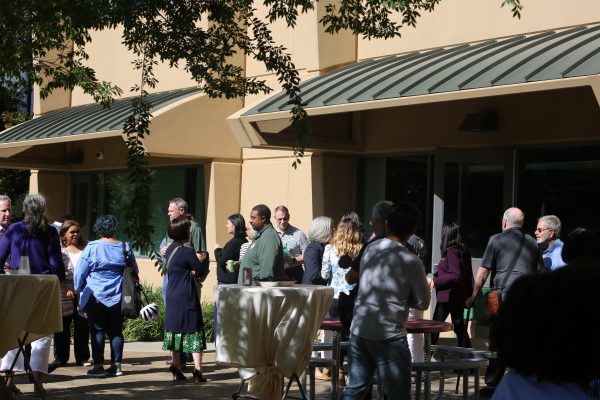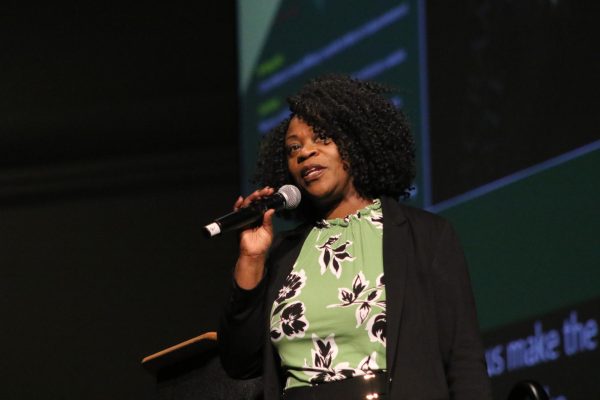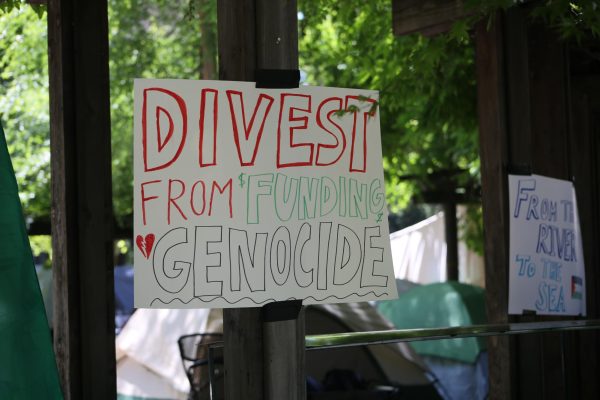Sac State investigating fraternity after anonymous hazing tip
Delta Chi under review after anonymously sent photo depicts alleged hazing
Anonymous - The State Hornet
Sacramento State is investigating a potential hazing incident after an anonymous person emailed The State Hornet and President Nelsen’s interim chief of staff Cely Smart. The sender described the photo as depicting an imitation of ‘the elephant walk,’ a hazing practice where members stand in a line or circle and walk while holding the genitals of the person behind them.
January 28, 2019
After an anonymous email was sent to both university administration and The State Hornet, Sacramento State is investigating an alleged hazing incident with the university’s chapter of the Delta Chi fraternity.
The email was sent Saturday to The State Hornet and President Robert Nelsen’s interim chief of staff, Cely Smart, alleging hazing events were encouraged by members of Delta Chi and other social Greek life organizations.
The email included a picture, which the anonymous sender described as depicting “Delta Chi members participating in a simulation of what appears to be ‘the elephant walk,’ a form of known hazing in fraternities.”
The “elephant walk” is a hazing practice where members stand in a line or circle and walk while holding the genitals of the person behind them.
JUST IN: @sacstate is investigating an alleged hazing incident with the university’s chapter of the Delta Chi fraternity. An anonymous source sent a copy of their complaint to The State Hornet, which included this photo. Story to come, follow @TheStateHornet for updates. pic.twitter.com/NFs9yKs22B
— Margherita Beale (@margheritabeale) January 28, 2019
“We need a lot of information to know what all is going on in that picture,” said Beth Lesen, associate vice president for student affairs and dean of students at Sac State. “We have a lot of questions and that’s all part of the investigation.”
According to Lesen, any allegation of hazing is investigated by the university. Not only is hazing not tolerated at Sac State, but it is illegal in California, as prescribed under Penal Code 245.6.
“Our investigation is usually about whether the alleged activity constitutes hazing because there are legal definitions of the term,” Lesen said. “We need to investigate what did or did not actually happen and then was there enough to reach the legal definition of hazing.”
Lesen said that in her seven years at Sac State, she does not remember Delta Chi ever being investigated for allegations of hazing. However, she said other Greek organizations have faced consequences for “crossing the line.”
Because of the email sender’s anonymity, Lesen says the university is limited in its ability to ask follow-up questions regarding the allegations made. In lieu of a response from the anonymous sender, the university will question individuals of the organization who choose not to be anonymous.
Lesen described the formal sanction process for hazing as “context-dependent,” meaning that the university will examine information surrounding the incident and assign consequences on a sliding scale.
Consequences for hazing incidents may vary from educational sanctions to suspension and even removal from the university, Lesen said.
If the latter occurs, Lesen said removal can usually last up to five years. This is because after that time frame, anyone who was associated with the organization who violated policy would almost always have graduated.
At that point, a new group of people can come forward and ask to reconstitute the organization and recruit new members.
Consequences for hazing can include both group and individual repercussions. Group sanctions are handled by Student Organizations & Life, while individuals are referred to the Office of Student Conduct.
“It’s very situation specific,” Lesen said. “Sometimes there’s enough to determine a group behaved badly. Sometimes, it’s really two or three people who really transgressed.”
According to Lesen, these two types of consequences are not independent of one another but they’re also not a package.
Lesen says that all campus Greek life organizations receive extensive training on hazing.
“If anyone is hazing there’s absolutely no excuse,” Lesen said. “They can’t claim ignorance because we train them thoroughly.”
All organizations go through new member education and are trained in recognizing hazing to ensure that “the line,” Lesen said, is not being crossed.
Lesen said she encourages any students who suspects hazing to come forward and report the incident to SO&L, the Office of Student Conduct or to her directly.
“When you get involved with an organization, we want to make sure it’s constructive and that everybody’s participation is constructive,” Lesen said.
The Sac State Delta Chi chapter did not respond to multiple requests for comment made by The State Hornet.
This is a developing story. Stay with The State Hornet for updates.


























































































































